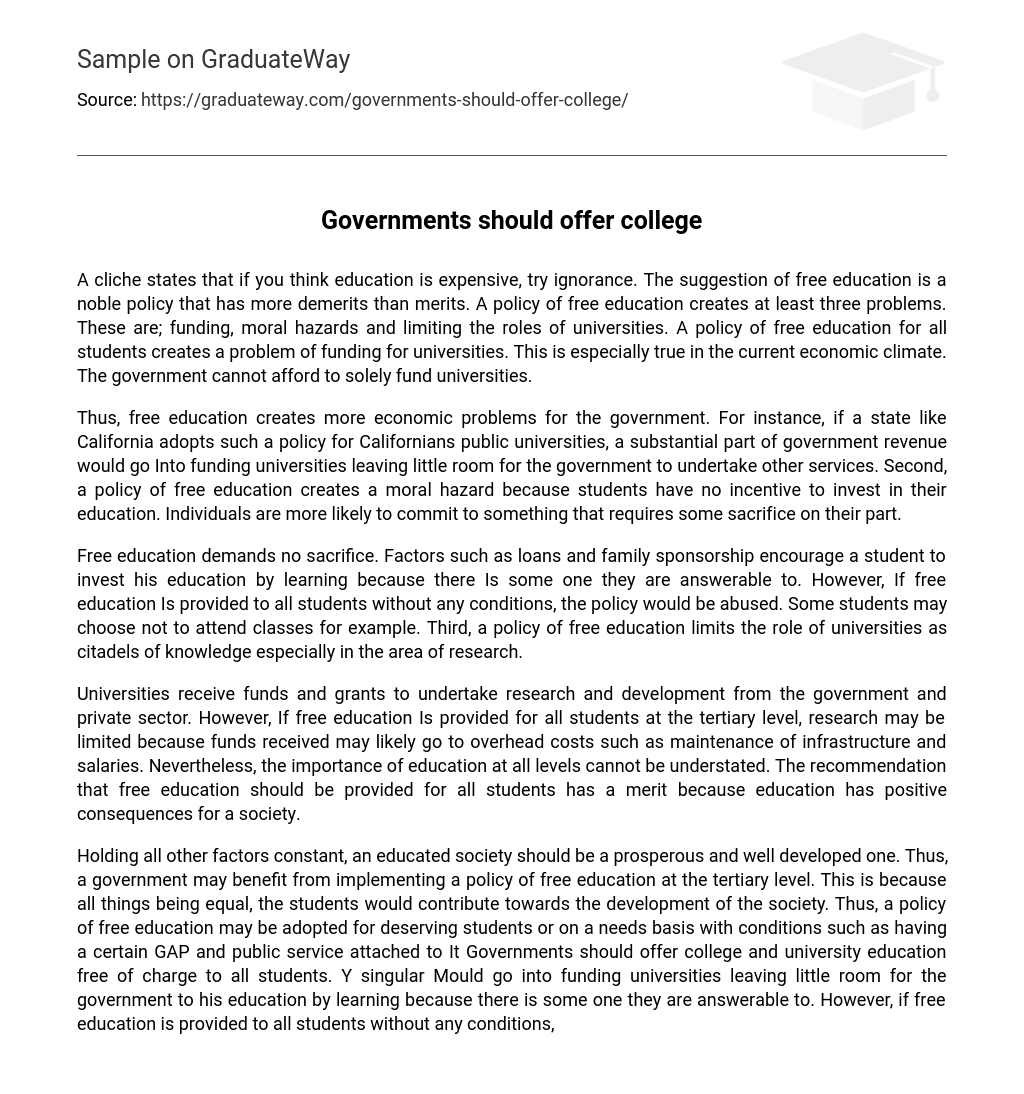While it is commonly said that if education is considered costly, one should understand the consequences of ignorance, the drawbacks of providing free education outweigh its benefits. The provision of cost-free education entails three primary concerns: funding, moral hazards, and limitations on universities’ roles. Making education freely available to all students poses a financial challenge for universities, especially considering the current economic circumstances. It is not feasible for the government alone to shoulder the burden of funding universities.
Therefore, providing free education poses economic challenges for the government. To illustrate, if a state such as California embraces this approach for its public universities, a significant portion of government funds would be allocated towards university funding, leaving limited resources for other government services. Additionally, implementing free education results in a moral hazard since students lack the motivation to invest in their own education. People are more inclined to value and commit to something that necessitates personal sacrifice.
Although free education does not require any sacrifice, students are still driven by factors like loans and family sponsorship, which make them responsible for their educational investments. However, if free education is granted to all students without any conditions, it can be taken advantage of. For instance, certain students may opt out of attending classes. Additionally, a policy of providing free education restricts the role of universities as knowledge hubs, especially in terms of research.
Universities receive funding and grants from both the government and private sector for research and development, but if free education is offered to all tertiary students, prioritizing funds for infrastructure maintenance and salaries may limit research opportunities. However, it is important not to underestimate the significance of education at all levels. Hence, despite potential limitations, the proposal to provide free education to all students remains valid due to its positive implications for society.
An educated society leads to prosperity and development. Therefore, implementing a policy of free tertiary education can benefit the government. This is because educated students contribute to society’s advancement. To ensure deserving students benefit from free education, conditions such as a minimum GAP (grade point average) and public service requirements may be attached. Governments ought to provide free college and university education to all students. Funding for universities would become the responsibility of the government, ensuring accountability in the education system. However, if free education is offered without any conditions, there would be no restrictions.





